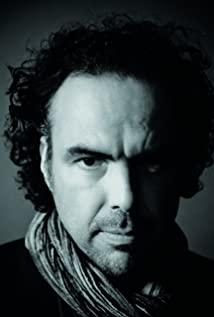I've finally finished watching the movie I've been hiding in my wish list. Forgot why it was included in the first place, but it doesn't matter... After all, this is a movie from almost 20 years ago.
I will not try to restore the plot. The reason why I want to write something is that I think there are several clips arranged by the director, which are more worthy of aftertaste and discussion. Many other comments seemed to focus on putting the story back together, but less on the film's theme: 21g = the weight of the soul.
A few snippets first.
1. Christina's rage when she learns that Paul is approaching her.
When Cris met Paul and asked him to go to an appointment at night, he felt lonely and lonely and needed comfort and company. When the two met, they came up with an accusation, thinking that Paul should not make a random confession to the woman he just met. After Paul told the truth, he immediately turned his face and kicked him out. This episode of Cris's acting skills is really bursting, expressing the pain in the heart of a woman who has just lost her husband and daughter's close relatives. She needs Paul's comforting company, but she definitely wants to use this to repair the damage she has suffered.
After Paul's information about his predecessor's heart was revealed, Cris's scar was uncovered again, and it was discovered that he had hoped to save himself from the pain, but actually benefited from the life of the person he loved + pregnant with Pity and gratitude thus approach yourself. This is simply an act of sprinkling salt on the edge of a knife without an old wound healed.
It's true that Paul wants to repay his gratitude to others, but he does not know that saving people is better than saving them. The really appropriate way is to take Cris out of the pain, instead of re-coupling her into the entanglement with the past.
2. Paul and his girlfriend's attitude towards artificial insemination changed before and after.
Paul would have been the closest to the soul, because he was dying in the beginning. What is the mentality of such a person? Disappointed, negative and world-weary. Why did he risk losing his transplanted heart by going to the toilet to smoke? The belief in survival has been shaken.
At this time, his girlfriend asked for artificial insemination, and his first attitude was to refuse: he could not participate in the life of possible offspring, which was another burden that he could not control and influence. The girlfriend's insistence on giving birth may actually be a redemption for Paul's previous abortion. On the surface, it seems to be for Paul, but in fact it is for himself.
After Paul received a heart transplant, why did he express his dissatisfaction with his girlfriend's attempt to have a baby by artificial insemination? Because when the body becomes whole, the mind becomes restless. He began to think more about what the donor's heart was going through. Having a baby is no longer a high priority after he has successfully transplanted a heart, and it is normal if he doesn't want it.
In reality, such examples abound. Whether it's your mother who thinks you are cold/hungry, or the men and women who are now I don't want you to think I want me to feel, they are all using their own subjective thoughts to force mental output. If this goes on for a long time, the side that is exported will definitely have side effects.
3. Jack and the church yellow hair, ignoring his wife over the phone and several links in prison.
Jack is the main protagonist of the film, and also the most important character calling for the title. Not only because of his life or soul, but also because he is the core character that can be linked together in the main story line, but also because he is also trying to inquire about the whereabouts of his soul and answer himself along the way. To put it bluntly, he is the person who cares most about where the soul comes from, where it goes, and how to control it.
He has two scenes with the yellow-haired boy in the hat in the church prayer. In the first scene, Jack's persuasion was ineffective. He used violence to suppress violence in public, and was persuaded by the priest. That was the stage when Jack claimed to be loyal to the Father. The second paragraph is about returning to the church to sing hymns with the crowd after being released because of bumping into someone and turning himself in. The kid turned back and gave him a sneering smile, as if mocking him, even if he believed in God faithfully, he would still suffer the consequences.
The plot before and after these two times has nothing to do with the main line. Why should there be such a before and after echo? I thought about it, the insertion of this clip is very deliberate, it can be regarded as the foreshadowing of Jack's inner thinking about the soul.
As the soul of the film, Jack is the direct object to answer the question of how many grams the soul weighs. Is his soul worthy of respect? He once had an unbearable past. After sincerely doing good, he committed homicide due to negligence, which was the biggest challenge to Jack, who returned from doing good. Why? Because he once committed evil, and now he has found sustenance at the religious level, he should be redeemed and spend the rest of his life smoothly. Naihe was fired one after another and was involved in a car accident. At this juncture, should we continue to believe in God? After he was finally released from prison, he still chose to believe in his beliefs, abandoned his wife and children, and went out to work. Find your inner home.
Climax part dismantling and open discussion
Coincidentally, just when Jack was determined to change his mind and fill his heart with labor, two other souls looking for justice (Paul and Cris) were just about to come to the door. One wants to avenge the deceased husband, and the other wants to take a debt for the benefactor. From this moment on, the film enters a critical time to truly answer the question of the soul posed by itself. I continue to use self-questioning and self-answering to try to make a string.
1. Paul has successfully subdued Jack, and taking his life is just a trigger, why stop? Even if Jack rushed into the room in the middle of the night and asked him to shoot himself with a gun, he still didn't choose to shoot?
There are two meanings here. The superficial meaning is that he never intended to actually kill Jack. It was Cris who was really going to kill Jack. Paul wants to help Cris sort out all the clues. If Jack continues to appear, Cris will live in pain, so he lied to kill Jack.
The second meaning is that Paul believes that he carries the heart of Cris' deceased husband and carries the soul of the other party. But when he saw Jack crying and surrendering himself to death, he had already chosen let go. At this moment, after a bit of an epiphany, all living beings are Buddhas. This also explains why in the end Jack chose to shoot himself when Paul and Cris scuffled.
2. Cris saw Jack and Paul scrambling into the room, and going up was a meal. At the end of the show, she stood calmly by the window again, did she forgive Jack?
Yes. Cris saw Jack coming in, thinking that the other party was malicious, and hit him with the lamp. If Paul hadn't shot himself, she would have killed Jack instantly. But in the process of rescuing Paul, she witnessed Jack lie to the police that he killed Paul. After this scene, Cris has reason to believe that Jack has sought redemption with deep repentance in his heart. If the soul has weight, then Jack's head at this moment must be properly flashing a white 21+21g. So in the end, it's only natural to be able to forgive Jack.
3. Why did Jack storm into Paul and Cris's room? Has he finally found his answer?
I wrote this and found that I don't need to answer this question, I believe everyone has their own judgment.
The story of this film is well conceived, but unfortunately, the scissors operate with one operation, so that the film can be edited and edited.
The advantage of the chaotic editing is that the narrative method of three groups of people is frequently interspersed back and forth, so that people's thinking about the soul of the theme is no longer just focused on a single character, but has a perspective of all beings. I have to say that under this kind of random cutting, people seem to be looking at the surveillance cameras on the street, constantly looking for the focus point during the process of watching. So in the end, the overall thought will wander between the various characters. It doesn't matter whether the weight of the soul is 21g or not, what matters is whether the soul has weight. In fact, in Buddhist culture, there is a concept that all living beings are all Buddhas, that is, all living beings. If there is no enlightenment, then the Buddha is all sentient beings, each in his own cage, and the karmic retribution is endless. If enlightened, then all beings are Buddhas, such as Jack.
The downsides of editing confusion are self-evident. The film itself makes the audience who are not used to thinking feel bored and difficult to understand, but also makes the film itself lose the opportunity for word-of-mouth communication to pursue a larger audience and ratings. Slightly sorry.
View more about 21 Grams reviews











